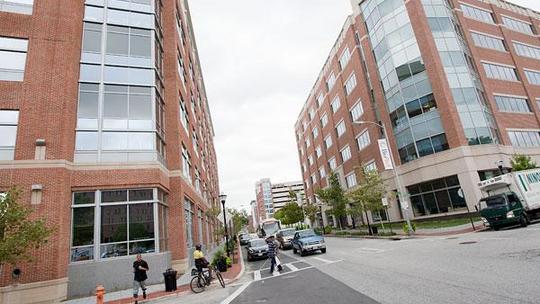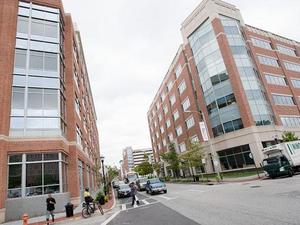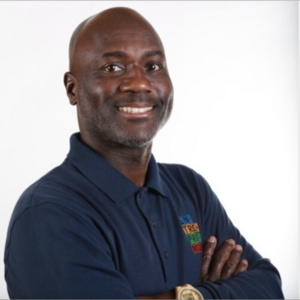
Sam Scott knows the value of a retinal scan.
The biomedical engineer was diagnosed with a rare neurological disease after a visit to an eye doctor. She calls herself a “scientist-turned-patient.”
Now, Scott and her company JuneBrain are working on technology that could one day bring retinal scanning into clinics, pharmacies and even homes.
Retinal scanners are the machines at the eye doctor’s office that take pictures of your retina. They’ve been around for decades and can help detect diseases like glaucoma. But Scott says they can also detect or track the development of diseases that can present in a person’s retina, like Parkinson’s disease and multiple sclerosis.
JuneBrain is developing a wearable retinal scanner — similar to a VR headset.
After finishing her Ph.D. at the University of Southern California, Scott said she moved to Maryland to get married and work at the National Institutes of Health. In June 2017, she founded JuneBrain. This fall, the six-person company moved from Montgomery County to the UM BioPark, which is located just west of downtown Baltimore.

“We’re building out that first commercial device,” Scott said. It’s expected to consist of a headset connected to a tabletop unit, but Scott said the right look is important.
“We wanted a design that was friendly, not some crazy-looking medical device that people hide in their closet,” she said.
The plan is to begin studies next year, then put the device in a clinic or pharmacy and start getting real-world results.
An early application of the device could be for patients with macular degeneration, Scott said. Currently, patients typically get injections in their eyes every six to eight weeks, but sometimes people need those injections sooner — or later, she said.
Patients could use JuneBrain to scan their retinas at home more regularly, Scott said, and doctors would know exactly when they needed injections.
The long-term goal of the company is to collect enough data from enough people so that JuneBrain and others might be able to recognize new biomarkers of disease that can be detected with a retinal scan.
That quest has been fueled by several grants and investments. In 2018, the National Science Foundation awarded JuneBrain $225,000 in funding. Last year, the Maryland Technology Development Corp. (TEDCO) invested $50,000 in the company.
Scott said she met Jane Shaab, executive director of the UM BioPark, through the Maryland Momentum Fund. The BioPark was attuned to JuneBrain’s needs, Scott said, and the company got a grant as part of the move.
“The BioPark itself is pretty awesome,” Scott said, noting that her neighbors in the building are also medical technology companies. “It’s right in the middle of everything.”
Baltimore also has more opportunities for new funding, Scott said, and, of course, there’s the restaurants.
“My whole team — we’re a bunch of foodies. We planned our whole move around the food that’s nearby,” she joked.










